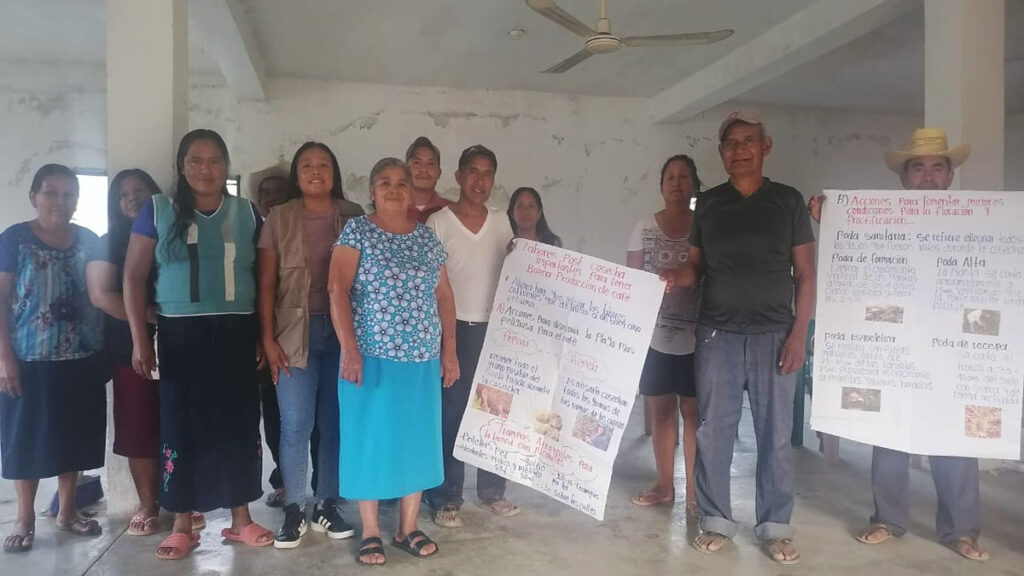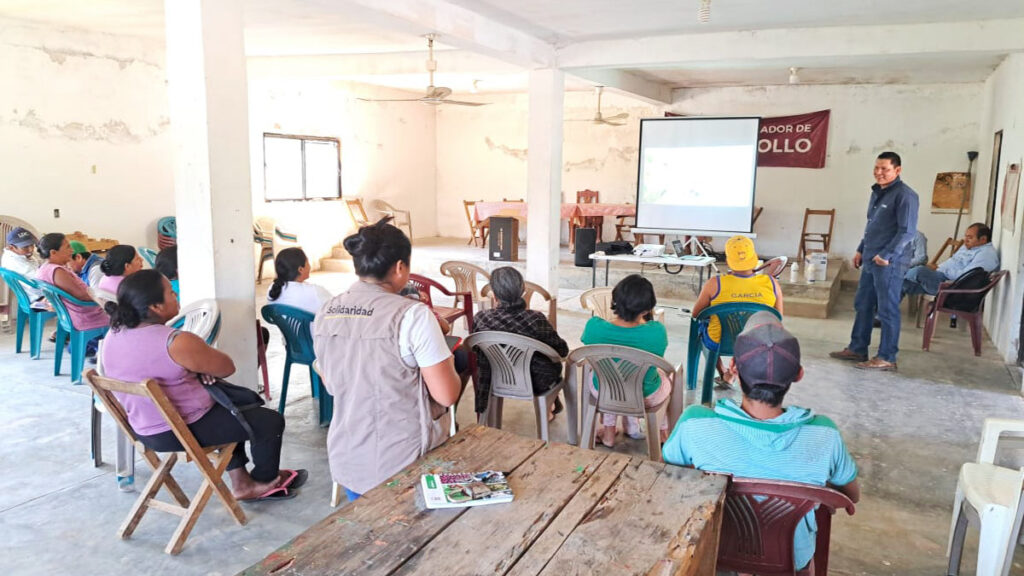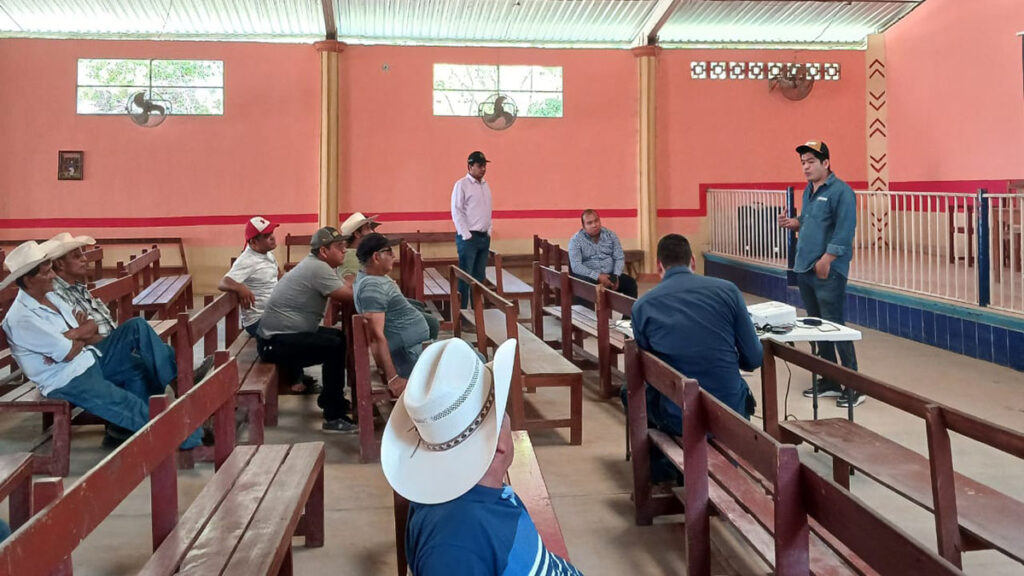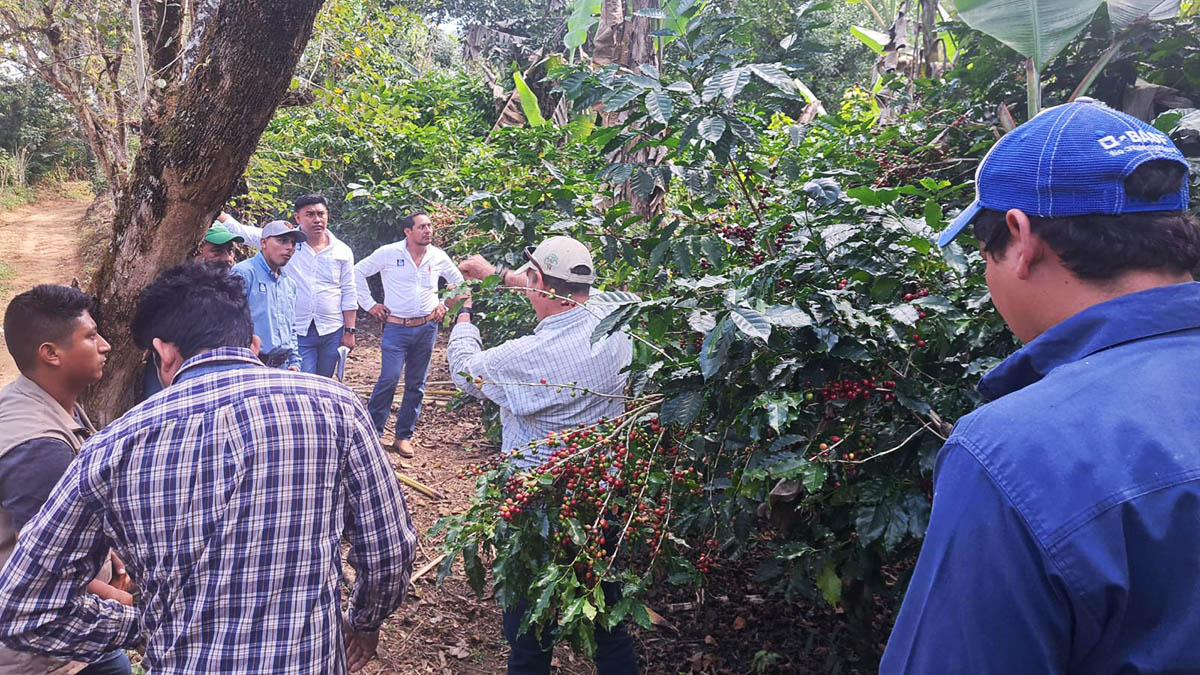The Kajve initiative, which began in 2021, stems from cooperation between BASF and UNESCO. They united to foster well-being and uplift living standards in coffee-producing regions in southern Mexico for the betterment of farmers.
Kajve, or coffee in the local Tzotzil language, is dedicated to improving the quality of life for coffee growers through comprehensive training and education. The project aims to harmonize BASF’s innovative technologies with the indigenous knowledge and wisdom of local communities. Through Kajve, participants adopt and pilot good agricultural practices, uphold environmental stewardship, adhere to safety protocols, and develop skills in farm management and financial proficiency.

Initially launched in three communities in Chiapas, the Kajve initiative has engaged approximately 200 producers whose livelihoods depend on coffee cultivation in Mexico.
“We are very happy with the progress of project Kajve and are proud to have received the UN Global Compact’s LOGRA Sustainability Award in the Prosperity category. This shows that our approach is working and we are on the right track,” commented Rosa Inés Gonzalez Torres, Latin America Pacific Stewardship & Sustainability Manager at BASF Agricultural Solutions.
Goals for sustainability
The project relies on partnerships among multiple stakeholders to establish sustainable coffee value chains and support growers as they shape their future with greater independence and prosperity. Kajve comprises six key action areas:
- Strengthened Kajve management model, based on a proven sustainable approach that encompasses the entire coffee value chain,
- Deforestation prevention and reforestation efforts, supporting tree planting initiatives, and providing educational resources,
- Improved agroforestry systems aimed at enhancing agricultural production, fostering biodiversity habitats, and bolstering landscape resilience,
- Circular management of nutrients and organic waste, training coffee growers on composting and wastewater management to minimize environmental impact,
- Integrated pest and disease management, assisting farmers in optimizing efficiency while utilizing BASF technological innovations and safety protocols,
- Community and gender inclusion, facilitating discussions on the value of their environment, ecosystem services, and agroforestry systems within native landscapes, with a specific emphasis on promoting gender equality.

Adding to an impactful partnership
Solidaridad is joining BASF efforts with Kajve in 2024. Overall, the project – with Solidaridad’s help – aims to demonstrate that restoring agroforestry systems, enhancing ecosystem service provision, and implementing innovative regenerative agriculture practices can enhance the income and resilience of smallholder coffee growers, regenerate natural resources, and mitigate climate change.
“We are very excited to begin the partnership with Solidaridad to advance and broaden the scope of Project Kajve. Solidaridad is an experienced and trusted partner, and we are more than happy to have them on board.”
Rosa Inés Gonzalez Torres, Latin America Pacific Stewardship & Sustainability Manager at BASF Agricultural Solutions.

“BASF and Solidaridad have formed a partnership, and together we are leading the second phase of the project to identify more producers, engage with additional key stakeholders, and achieve greater productivity with fewer resources. In essence, we aim to increase production on less land.”
Jorge Solano, Project Manager at Solidaridad in Mexico
This phase of the project will extend the work to 260 smallholders in the state of Chiapas to cover all aspects of sustainable agricultural production, tailoring solutions to specific contexts and collaborating closely with local communities to ensure alignment with cultural heritage and agro-climatic conditions, with the medium-term vision of expanding to more producers.
Solidaridad’s contributions
As a leader in the field, Solidaridad excels at bringing together stakeholders, including producers, governments, non-profit organizations, and private companies, to implement innovative, context-specific solutions. These solutions, rooted in market-based approaches and landscape considerations, aim to improve production practices, uplift rural livelihoods, and safeguard the environment.
“We aim to enhance safety conditions, provide increased personal protective equipment, and minimize environmental impacts through our vision of climate-smart coffee,” said Jorge Solano.
In Mexico, Solidaridad has fortified its team and infrastructure in 2023, augmenting its national capabilities with local expertise and knowledge. These initiatives include sectoral analyses, baseline assessments, and on-field implementation with small-scale producers, all geared towards promoting sustainable production and advancing regenerative agriculture practices.

